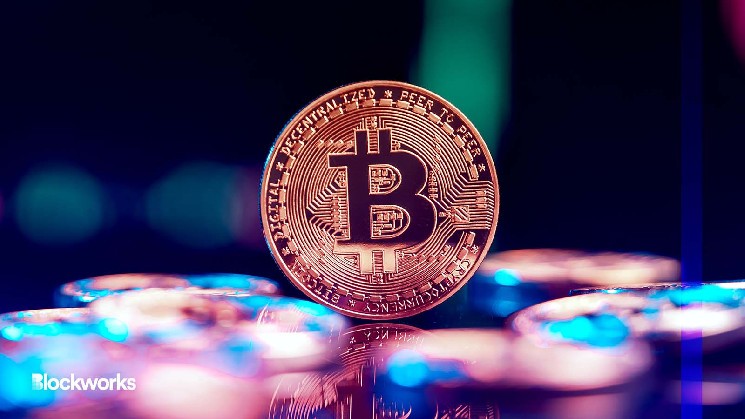Bitcoin Price Doesn’t Care About Macro News: NY Fed Economists

The Federal Reserve Bank of New York led a study that examined the relationship between bitcoin and macroeconomic data, finding that the two barely have a link.
“The key result is that, unlike other US asset classes, Bitcoin is orthogonal to monetary and macroeconomic news,” economists Gianluca Benigno and Carlo Rosa wrote.
They did flag that bitcoin seems to be slightly sensitive to consumer price index (CPI) data — a measure of inflation — however its coefficient was only 5%.
“If we restrict the sample to the period 2017-2021, the CPI coefficient is no longer significant for Bitcoin, but it remains significantly different from zero for other assets,” Benigno and Rosa said in the study.
“This disconnect is puzzling as unexpected changes in discount rates should, in principle, affect the price of bitcoin even when interpreting bitcoin as a purely speculative asset.”
Bitcoin was the chosen asset for the study because of its popularity and because it is more “accessible and liquid” than other cryptocurrencies, they said.
The economists analyzed its response to broadly defined macroeconomic data points such as initial jobless claims, industrial production, retail sales, unemployment and news on inflation. Bloomberg consensus forecasts were used to compare market expectations.
Bitcoin’s low responsiveness to macro news is in “stark contrast” with other assets the economists used for comparison — gold, silver, the S&P 500 and a number of bilateral exchange rates.
“All other traditional assets respond to macroeconomic news with an economically large and significant coefficient,” they wrote.
The economists originally expected bitcoin to respond to monetary policy news as they figured bitcoin is an asset with no intrinsic value, whose current value “depends on the discounted value of its future price.”
So, changes in current and future real interest rates, powered by macroeconomic events, should impact its desirability as an investment
“Our analysis instead shows that, while other US asset prices respond to both the target and the path of monetary policy news, Bitcoin is unresponsive to unexpected changes in the short-term rate while its reaction to news about the future path of policy is not robust,” they said.
Bitcoin (BTC) last traded around $24,560 as of 11:00 am ET and is down 35% in the last 12 months, but up 50% in the year-to-date period.
The S&P 500, on the other hand, is down 6.5% over the past year and up 5.2% in 2023 so far.






 Bitcoin
Bitcoin  Ethereum
Ethereum  Tether
Tether  USDC
USDC  TRON
TRON  Dogecoin
Dogecoin  Cardano
Cardano  Bitcoin Cash
Bitcoin Cash  Chainlink
Chainlink  Zcash
Zcash  Monero
Monero  LEO Token
LEO Token  Stellar
Stellar  Litecoin
Litecoin  Hedera
Hedera  Dai
Dai  Cronos
Cronos  Tether Gold
Tether Gold  OKB
OKB  Ethereum Classic
Ethereum Classic  KuCoin
KuCoin  Gate
Gate  Algorand
Algorand  Cosmos Hub
Cosmos Hub  VeChain
VeChain  Dash
Dash  Tezos
Tezos  TrueUSD
TrueUSD  Stacks
Stacks  IOTA
IOTA  Decred
Decred  Basic Attention
Basic Attention  Theta Network
Theta Network  NEO
NEO  Synthetix
Synthetix  Qtum
Qtum  Ravencoin
Ravencoin  DigiByte
DigiByte  0x Protocol
0x Protocol  Nano
Nano  Zilliqa
Zilliqa  Holo
Holo  Siacoin
Siacoin  Numeraire
Numeraire  Waves
Waves  Status
Status  Ontology
Ontology  BUSD
BUSD  Enjin Coin
Enjin Coin  Pax Dollar
Pax Dollar  Hive
Hive  Lisk
Lisk  Steem
Steem  Huobi
Huobi  OMG Network
OMG Network  NEM
NEM  Bitcoin Gold
Bitcoin Gold  Augur
Augur  Ren
Ren  HUSD
HUSD